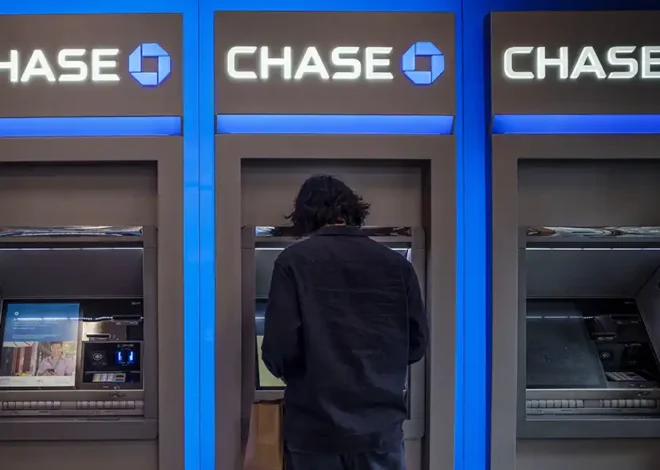The last thing I expected as I headed up the freeway from San Diego to Los Angeles was a money trap. Traffic? Yes. Frustration and delays? Naturally. But a money trap? Never.
Halfway there I had a choice: jump on a wide-open toll road or sit in a sea of traffic only to arrive at my appointment sweaty and swearing. It was an easy but costly decision: my $6.50 toll quickly turned into a $70 fine. Apparently, the State of California decided to remove all the toll collection booths and forgot to tell its residents. They claim it was a decision designed to save taxpayers’ money. I think it was a trap to lure suckers like me into paying over 10 times the standard rate.
Whether helping a client plan for retirement or teaching my son to budget his birthday money for the summer, I find myself preaching over and over about the practice of mindful spending. It simply means practicing the art of awareness by being conscious of how every single dollar is spent and alert to your larger financial goals – whether that’s a hefty retirement account or a new dirt bike.
Even the savviest can get caught unaware in a web of wasteful spending. And the opportunity cost of turning your cheek over to this waste can amount to thousands of dollars. And that’s money you should be putting to work building your net worth.
Following are four money traps that are sure to sabotage not only your wallet but your road to financial freedom.
1. The “Free” Trial Offer
They say the best things in life are free. Not always. Ever wonder why businesses are willing to offer that fee trial? Sure, it builds customer loyalty and, hopefully, you happily become a repeat buyer. However, companies also know that many of us never read the fine print and they make no attempt to remind us when the free period is over. Instead your “free” subscription or service converts to a paid one. You are left with an unwanted monthly expense and now they have a steady revenue stream.
Your loss is their gain. And since credit cards are often used over debit cards to secure these “free” offers, the 15.61% APR of interest you’re paying each year amounts to an even greater loss to your bottom line. And here’s where the trickiest trap lurks: many companies make it virtually impossible for you to cancel these offers so that simple one-second click takes hours of phone calls and emails to undo. They are making a calculated bet that you’ll get frustrated and give up, but you simply can’t afford to do this.
How do you avoid this trap?
My advice is simple: say, “NO!” But if you can’t resist a freebie, don’t skip the fine print. Know exactly what you are agreeing to, mark your calendar when the trail ends and, most importantly, have an exit strategy so you can get out.
Also, watch out for pre-checked boxes. Often a single checkmark gives a company the right to extend their offer beyond the trial period thus authorizing them to charge you. Ultimately, this gives you little recourse if you choose to later contest the charges.
Finally, my number-one rule for clients: review your credit and debit card statements monthly. This regular ritual will catch reoccurring surprises early thus saving you money.
2. The Spaver: Spending to Save
Spending to save rather than to satisfy a need can instantly sabotage your monthly budget. Just because you have a coupon or the opportunity to take advantage of a great deal doesn’t mean you need to act on it – especially if the good deal is for something you would not otherwise purchase like a gallon of coconut oil or two dozen cinnamon buns.
Warehouse membership stores such as Costco and Sam’s Club are designed to make a spaver out of you. Everything from their product placement, revolving door of new merchandise, and wide selection of tempting tasters is done to encourage spending.
And, it’s working! The only way to spend less than $100 at Costco is to simply leave your wallet at home. While purchasing items in bulk has its advantages – be strategic. It’s hard to imagine what a family of four is going to do with 2,250 Q-tips or 128 servings of salad dressing.
How do you avoid this trap?
Stay clear of the center aisles and beware of the special promotions – especially the ones found at the end of aisles known in the industry as “end caps.” Often, these end-cap items aren’t even on sale but just higher-margin products merchandised to catch the shopper’s eye.
Be a buyer, not a shopper. Stick to a list and allot yourself a set amount of time (preferably, at the end of the day when you are tired and less likely to meander through the aisles). Use the tasters to fill your stomach, not your cart. Finally, only carry cash – having limited resources means making limited purchases.
3. The Upsell
You’re standing at the rental car counter after a hellish day of airline travel only to be bombarded by a slew of questions.
“How about we upgrade you to a convertible?”
“Would you like to pre-purchase a tank of gas?”
“Need additional insurance coverage?”
“What about a GPS?” (As I am holding my smart phone.)
And, the one that always puzzles me given my kids are 17, 15 and 10.
“Do you need a car seat?”
“No, no, no, no and no!”
Nice try but these are money traps by way of the upsell and are designed to make the company richer and you poorer.
Upselling is a technique whereby a seller entices a buyer to purchase additional items in order to make a more profitable sale. Rental car companies aren’t the only culprits. Retailers, technology companies, consumer electronic stores and car dealerships offering extended warranties and after-market products regularly employ this tactic. Hell, even McDonald’s has mastered the upsell with its supersized offers – and that doesn’t just affect your wallet but your waistline too!
How do you avoid this trap?
Do your homework and ask questions. Know what you already own so you don’t make a redundant purchase. For example, only 10 percent of consumers need to purchase additional rental car insurance yet more than 60 percent elect to pay a daily rate that is almost as much as the rental car itself.
Before deciding on a warranty, you need to consider the reliability of the product you are purchasing and understand what the manufacturer is already offering. Many of us forgo analyzing the economics such as the warranty fee as a percentage of sale price, the average non-warranty repair cost, possible deductible and the product’s life cycle. Also, consider the actual probability of something breaking — often we act solely on the fear of what “could” happen.
When you do say NO, stick to it. Don’t let the power of persuasion take you down. Some sellers use fear tactics to make you think you can’t afford not to have these add-on items. Truth is, most of the time you can’t afford to buy them.
4. The “Freemium” Game
“Play on.” Seems like an innocent request, right? Ask the 12 million players of Candy Crush Saga who were enticed by those two simple words to put close to $2 billion into the pockets of the game’s creators. The worst part? This game is actually free!
Four percent of the half a billion people whom downloaded the free app in 2013 were lured by one of the biggest money traps out in the market today – the freemium game.
And Moms sitting in carpool lines aren’t the only victims. Many freemium games, including Clash of Clans, Despicable Me 2, and Smurf’s Village, are taking advantage of the purchasing power of children. With a simple password and a few clicks, young players can ring up charges from 99 cents to $99 without even knowing it. Image the shock one mother had when she discovered her seven-year old twins racked up $3,000 worth of in-app purchases while playing Clash of Clans.
Pull out your old flip phones and lock up you iPad because freemium games are here to stay. There is only one way to avoid this money trap – grab a book, take a walk, hit yourself over the head with a hammer, do anything but play.
These are just four of the most common areas where money traps lurk. Be aware that businesses are constantly refining and creating new tricks of the trade designed to separate you from your hard-earned cash. Staying conscious of your surroundings – whether in front of your computer, at the checkout counter or speeding up the 5 Freeway – can have a dramatic impact on your bottom line.





